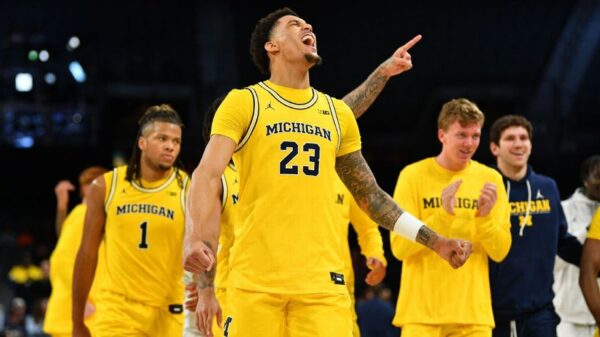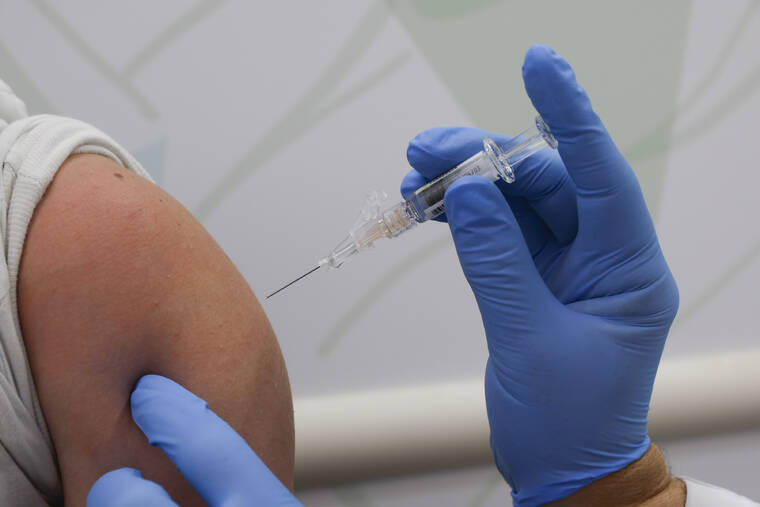Hawaii’s health officials have announced a new set of vaccine recommendations for the upcoming respiratory virus season, diverging from expected federal guidelines. The Hawaii Department of Health, collaborating with the West Coast Health Alliance—comprising California, Washington, and Oregon—issued these recommendations on Wednesday, ahead of a federal advisory committee’s scheduled review of vaccines.
The alliance recommends that all children aged 6 to 23 months and pregnant women receive the COVID-19 vaccine. Additionally, it advises that the vaccine should be made available to all children and adults who seek protection. Recommendations also include flu vaccines for nearly all individuals and RSV vaccines for infants and older adults.
“Our states are united in putting science, safety, and transparency first — and in protecting families with clear, credible vaccine guidance,” stated the four state governors, including Hawaii’s Governor Josh Green, in a joint statement. They emphasized their collective commitment to public health and prioritizing safety over political considerations.
These new guidelines are informed by credible national medical organizations, including the American Academy of Pediatrics and the American College of Obstetricians and Gynecologists. According to the state’s largest insurance provider, HMSA, COVID-19 vaccines will remain available at no cost to individuals aged 6 months and older. Kaiser Permanente, which began administering vaccines earlier this week, confirmed that the vaccines are also offered at no cost to its members in the same age group.
The new recommendations emerge during a period of upheaval within federal health agencies. Under the leadership of U.S. Health Secretary Robert F. Kennedy Jr., the Centers for Disease Control and Prevention (CDC) has undergone significant changes. Kennedy recently announced via social media that COVID-19 vaccines are no longer recommended for pregnant women and healthy children. He dismissed all 17 members of the CDC’s Advisory Committee on Immunization Practices (ACIP), replacing them with his appointees.
In light of these changes, U.S. Health and Human Services spokesman Andrew Nixon criticized “Democrat-run states” for undermining public trust in health agencies during the COVID-19 pandemic. He reaffirmed that ACIP remains the authoritative body guiding immunization recommendations in the United States and that policies will rely on rigorous scientific evidence.
The West Coast Health Alliance has positioned itself against what it terms the “chaos and politicization of science” stemming from the previous administration. The alliance emphasized that all recommended immunizations should be accessible to residents of their states. Dr. Kenneth Fink, Director of the Hawaii Department of Health, reiterated that vaccines provide essential protection against severe illness from respiratory viruses.
“Seasonal immunization is a critical public health tool to reduce community transmission and alleviate strain on the healthcare system,” Fink noted in a recent news release. The recommendations highlight groups at higher risk for complications, including young children, older adults, pregnant individuals, and those living in congregate settings, while also advocating for vaccination for anyone seeking protection.
Hawaii’s Department of Health strongly encourages health insurers to continue covering these vital immunizations at no cost to patients. The department praised insurers already providing this benefit.
Kennedy’s recent appointments to the ACIP have drawn scrutiny. Among them is Dr. Kirk Milhoan, a pediatric cardiologist and senior pastor who has promoted controversial treatments during the pandemic. Milhoan was previously investigated for allegedly spreading misinformation about COVID-19 vaccines but faced no legal repercussions.
As the situation evolves, the U.S. Food and Drug Administration approved updated COVID-19 vaccines last month, but only for individuals aged 65 and older or those younger with specific health risks. The ACIP’s discussions on various vaccines, including those for measles and hepatitis, are set to take place today and Friday.
Meanwhile, the insurance trade group America’s Health Insurance Plans announced its members will continue to cover updated COVID-19 and flu vaccines recommended as of September 1, 2023, through the end of 2026.
The West Coast Health Alliance’s recommendations for the 2025-2026 respiratory virus season include:
COVID-19
– **Children**: All children aged 6 to 23 months; children aged 2 to 18 with risk factors or those never vaccinated; individuals in close contact with others at risk; all who choose protection.
– **Pregnancy**: All individuals planning pregnancy, pregnant, postpartum, or lactating.
– **Adults**: All individuals aged 65 and older; younger adults with risk factors; those in close contact with at-risk individuals; all who choose protection.
Influenza
– **Children**: All individuals aged 6 months and older.
– **Pregnancy**: All individuals planning pregnancy, pregnant, postpartum, or lactating.
– **Adults**: All individuals.
RSV
– **Children**: All individuals under 8 months; those aged 8 to 19 months with risk factors.
– **Pregnancy**: Individuals at 32-36 weeks gestational age.
– **Adults**: All individuals aged 75 years and older; those aged 50 to 74 years with risk factors.
As the respiratory virus season approaches, these recommendations aim to provide a comprehensive public health strategy to mitigate the impact of COVID-19, flu, and RSV across Hawaii and its partner states.




































































